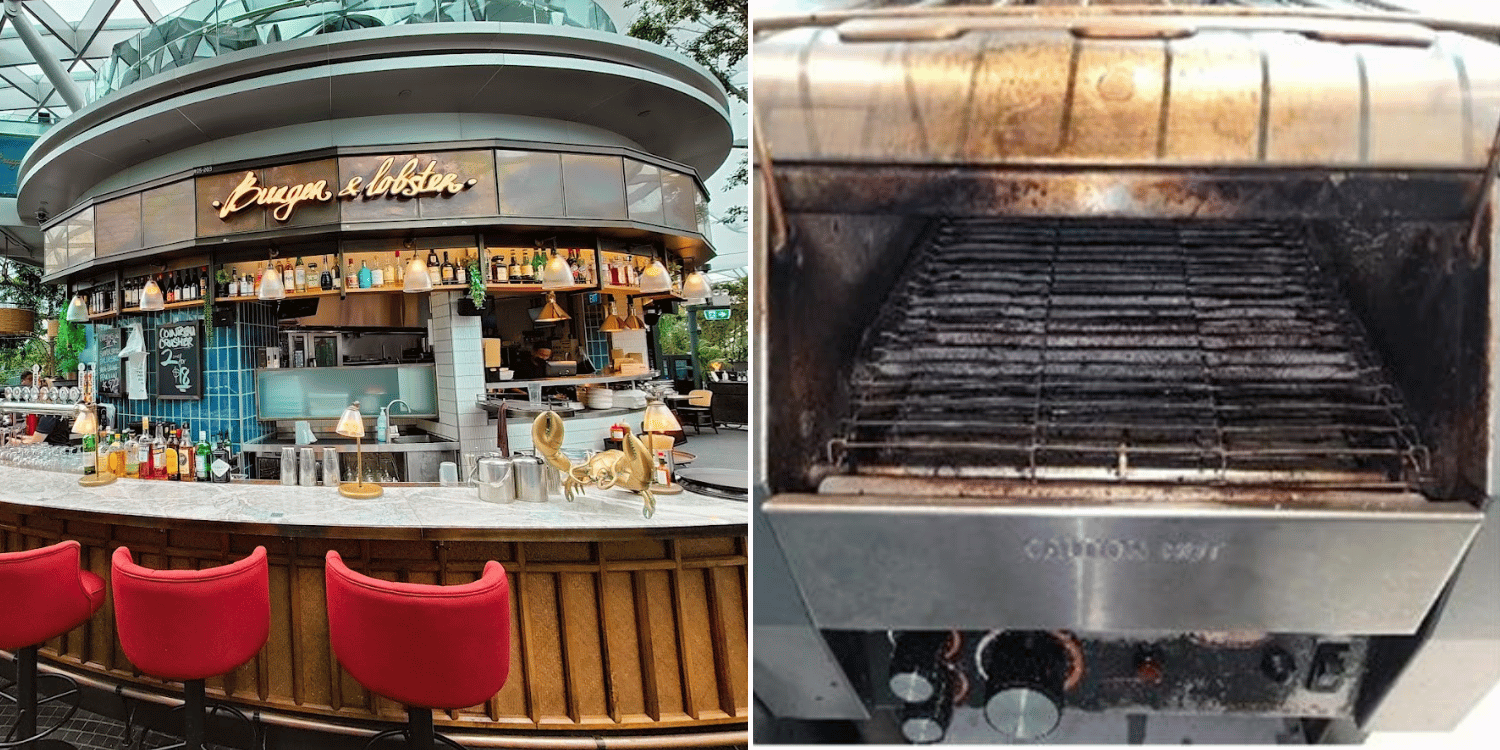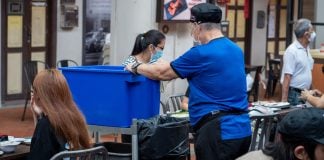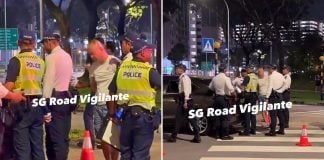Burger & Lobster among 3 companies fined for food safety lapses
On Thursday (11 April), the Singapore Food Agency (SFA) announced that three companies were fined in court for food safety lapses.
They are Burger & Lobster, GH Enterprise, and Yan Zai Seasoning.
In particular, Burger & Lobster committed multiple food safety lapses under the Environmental Public Health (Food Hygiene) Regulations.
Burger & Lobster fined S$3,000 for food safety lapses
SFA stated that it received reports of gastroenteritis involving 132 people who dined at Burger & Lobster’s outlet at Jewel Changi Airport between 7 and 15 May 2022.
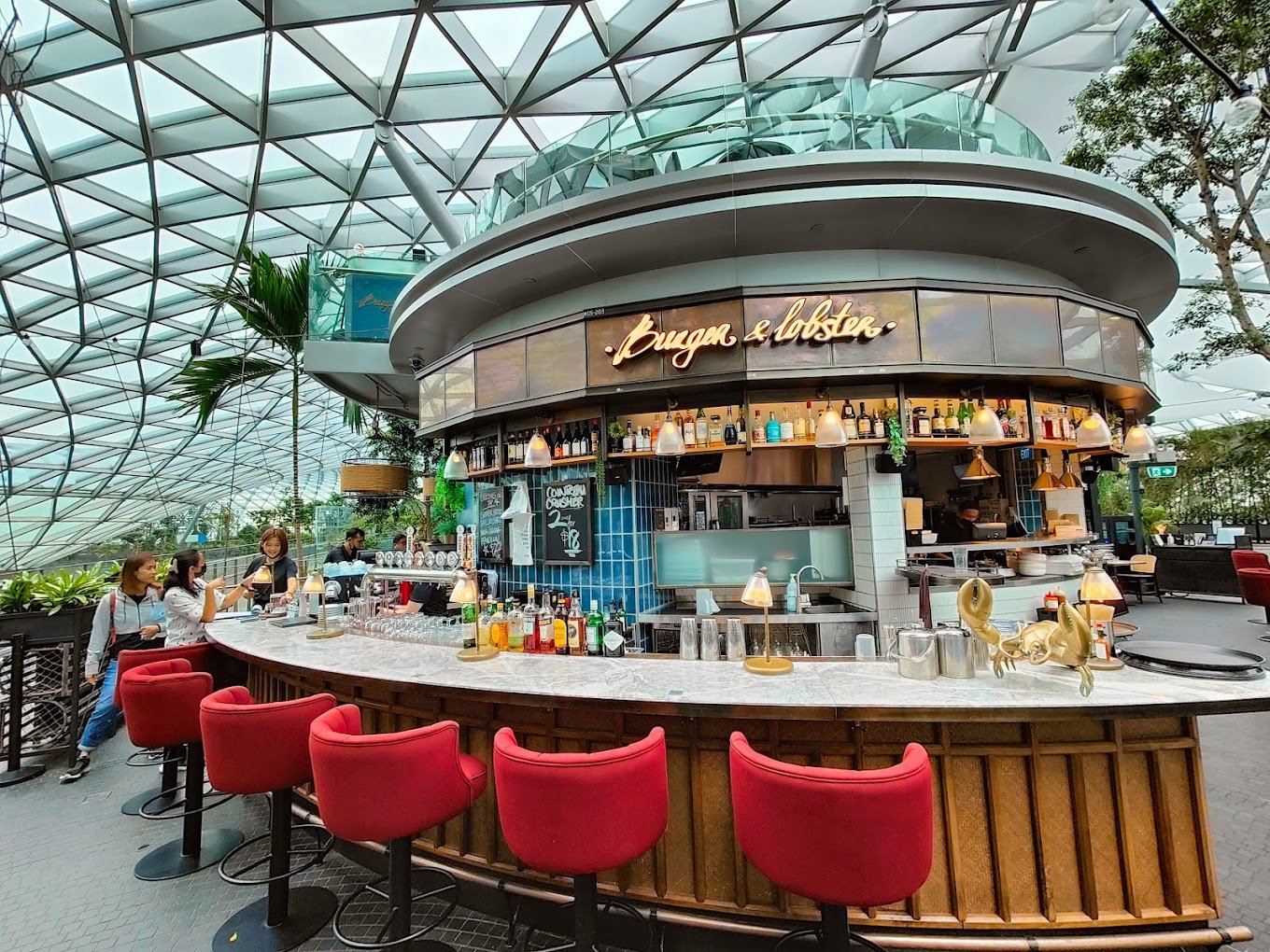
Source: Google Maps
Five of them ended up in hospital.
The Ministry of Health (MOH) and SFA then jointly investigated the licensee’s premises and discovered multiple food safety lapses.
Such lapses included:
- Poor housekeeping
- Cracked kitchen floor tiles
- Using a dirty oven toaster
- Failure to employ a food hygiene officer for the premises
As a result, SFA suspended the outlet’s food business operations from 16 May to 5 July 2022.
The agency also directed the licensee to rectify the lapses and take necessary measures to improve food safety practices and its premises’ cleanliness.
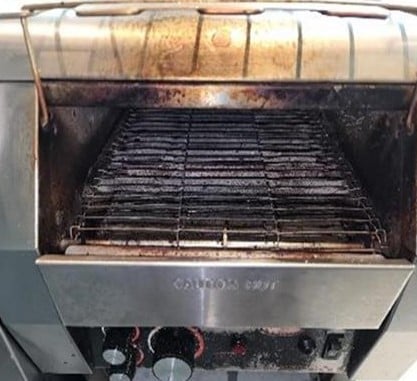
Source: Singapore Food Agency
On 11 April, Burger & Lobster Singapore Pte Ltd was fined S$3,000.
“All food operators should ensure that their premises are clean and well-maintained, and staff are adequately trained on proper food safety management,” SFA said.
“SFA will not hesitate to take firm action against anyone found to be in violation of the Environmental Public Health (Food Hygiene) Regulations.”
GH Enterprise illegally imported vegetables
As for GH Enterprise, SFA said that in April 2023, its officers detected about 1.5 tonnes of undeclared and under-declared fresh vegetables in consignments that the importer had brought in from Malaysia.
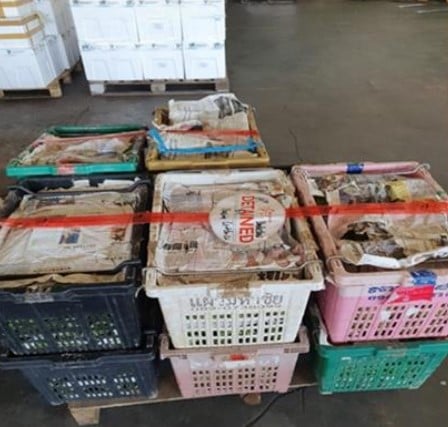
Source: Singapore Food Agency
This included spring onion and spinach, with authorities seizing all illegal consignments.
As such, GH Enterprise and its director, Chua Chuan Leong, were fined S$7,000 and S$5,000 respectively.
GH Enterprise’s fine was for illegally importing fresh vegetables for sale.
On the other hand, Chua had failed to prevent the offence from being committed.
SFA reiterated that food imports in Singapore must meet its requirements.
Only licensed importers can import fruits and vegetables.
Every consignment must also be declared with a valid import permit.
“Illegally imported vegetables are of unknown sources and can pose a food safety risk,” SFA said, adding that this was especially so if an unregulated or high level of pesticides was used.
Ingesting excessive pesticide residue through vegetables subjected to pesticide abuse in the long term can cause adverse health effects.
Yan Zai Seasoning engaged in illegal food processing & packing
In Yan Zai Seasoning’s case, SFA officers found the firm engaging in the illegal processing and packing of food products on 9 Nov 2022.
The discovery took place at its premises at 19 Jurong Port Road, which did not have a licence to conduct food processing.
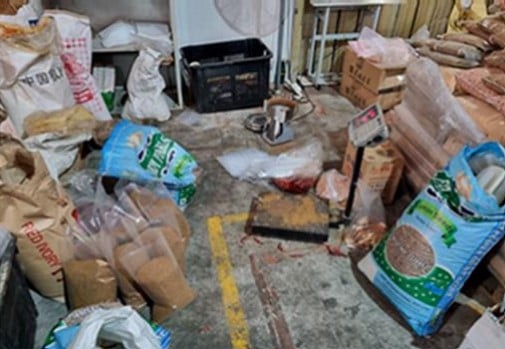
Source: Singapore Food Agency
Authorities seized more than 145 kg of dried food products.
Yan Zai Seasoning received a fine of S$2,500 for operating an unlicensed non-retail food business under the Sale of Food Act.
“Illegal processing and packing of food products at unlicensed facilities poses a food safety risk,” SFA said.
“In Singapore, all food processing establishments must be licensed and are required to meet SFA’s requirements and food safety standards.”
SFA routinely inspects these licensed establishments.
The agency advised members of the public who come across poor hygiene practices in food establishments to avoid patronising them.
Instead, they may provide feedback via SFA’s online feedback form or contact the agency at 6805 2871 with details for follow-up investigations.
Have news you must share? Get in touch with us via email at news@mustsharenews.com.
Featured image adapted from Google Maps and Singapore Food Agency.
